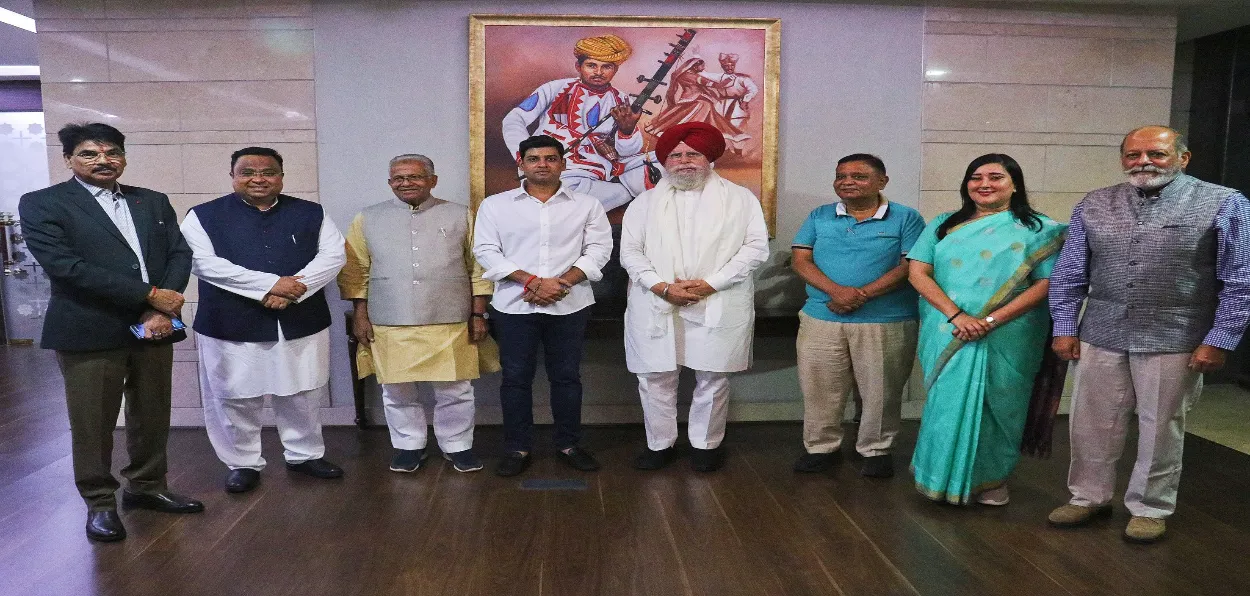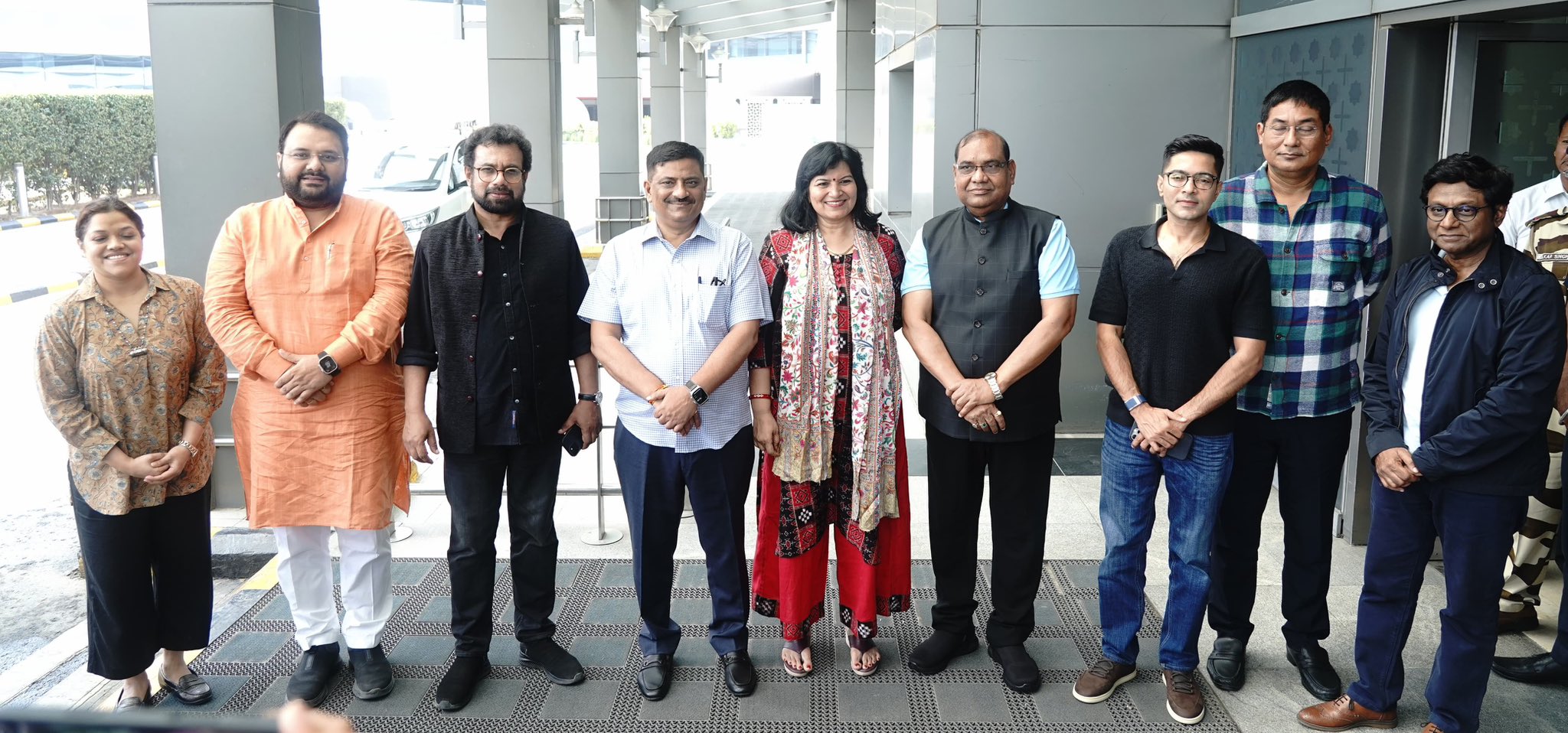
 Shankar Kumar
Shankar Kumar
As the members of Parliament comprising veterans and eloquent leaders and accompanied by equally erudite diplomats embark on journey to the world capitals, India is mounting diplomatic pressure on Islamabad, whose continued support for terrorism first led to killing of 26 tourists in Pahalgam, and eventually India’s military attacks on terror hideouts inside Pakistan and Pakistan-occupied Jammu and Kashmir.
The seven delegations representing a full political spectrum of the world’s largest and uninterrupted democracy would brief foreign governments on ‘Operation Sindoor’ and tell the world why reining in Pakistan in its naked support to terrorism is siding with peace and global stability.
The unprecedented diplomatic outreach is a masterstroke. It's seen as India’s effort to take the fight against Pakistan beyond the battlefield —into the diplomatic arena. Each delegation, led by a prominent Member of Parliament, comprises senior political leaders from various political parties and former diplomats.
Importantly, all delegations have Muslim representation, showcasing India’s deliberate effort and an organic reality of its pluralistic values, while countering Pakistan’s design to communalise discourse around Kashmir.
This is by far the largest outreach programme of India on this level as 59 leaders, MPs, and ex-diplomats are involved in seeking to build international consensus on Pakistan’s role in cross-border terrorism.
Since the 1980s, Pakistan-sponsored cross-border terrorism has posed a serious threat to peace and security in the South Asia region. The interplay of state complicity, ideological motivations, and strategic calculations has given rise to a persistent threat of cross-border terrorism, and Pakistan has used it unsparingly against India.
Terrorist outfits like Lashkar-e-Taiba (LeT) and Jaish-e-Mohammed (JeM) have been trained, armed, and sheltered in Pakistan with tacit support of Pakistan’s military-intelligence establishment.

Sanjay Kumar Jha-led delegation leaving New Delhi for Indonesia, Malaysia, South Korea, Japan and Singapore (Source: MEA)
This truth tumbled out in the open during ‘Operation Sindoor.’ It exposed a nexus between terrorists and the Pakistani Army. US-designated terrorist Hafiz Abdul Rauf was seen leading prayers at the funeral of slain LeT Commanders in Muridke.
This funeral was also attended by uniformed Pakistan Army personnel and members of the banned Jamaat-ud-Dawah of Hafiz Saeed---the mastermind of the 2008 Mumbai terrorist attack in which more than 160 people were killed.
Moreover, what was particularly disturbing was that coffins of all the slain terrorists were draped in Pakistan’s national flag--- hinting that they were given state honours.
The development broadly conveyed the existence of a deep and close nexus between terrorists and the Pakistan Army. Much before the Pahalgam incident, Pakistan had itself let the world know about it. After the 26/11 Mumbai terror attack, Pakistan tried to deceive the world by pronouncing Sajid Mir, a serving Pakistani Army Major who had been loaned to LeT, dead.
Sajid Mir had played an instrumental role in scripting the 2008 Mumbai attack and was declared dead by Pakistan to deflect international attention from India’s charge of state-sponsored terrorism.
However, once the international community uncovered Pakistan’s deception, Sajid Mir was suddenly resurrected and hastily put behind bars in an apparent bid to save face. Despite this, Pakistan has never accepted its role in terrorism against India.
In the wake of the heinous 26/11 Mumbai attacks, India provided enough proof to Pakistan, expecting a fair and credible investigation. However, despite its promise to investigate the matter, the case has not progressed for more than 16 years.
Similarly, Pakistan has consistently turned a blind eye to the involvement of home-grown terrorist groups in other major attacks—be it the 2001 Parliament attack, the January 2016 assault on the Pathankot airbase, the September 2016 Uri attack on Indian Army brigade headquarters, or the February 2019 Pulwama suicide bombing.
After each terror incident in India, Islamabad has resorted to its familiar tactic of denial, despite mounting evidence of their origin and support within Pakistan. In the case of Pulwama, too, Islamabad used its oft-repeated excuse of disclaiming any link between the terrorist attack and Pakistan.
Pakistan has consistently failed to dismantle the infrastructure of terror on its soil. Instead, it has backed the growth of terrorist groups by providing them state-backed facilities. For example, it has pledged to rebuild the LeT terror base in Muridke—one of the nine terror hideouts which was hit by India during ‘Operation Sindoor,’ on May 6-7.
In a clear affront to international sensitivity on terrorism, on May 15, Pakistan’s federal minister Rana Tanveer Hussian reportedly visited Muridke and said the Pakistani government has pledged to rebuild the areas at its own expense. As the international community was taking note of it, Pakistan Prime Minister Shehbaz Sharif reportedly announced providing a compensation of Rs 1 crore to each legal heir of those killed in India-led air strikes on the JeM headquarters in Bahawalpur. According to media reports, at least 14 family members of JeM’s chief Maulana Masood Azhar were killed in Indian airstrikes at the Bahawalpur-based JeM headquarters.
These actions not only show a disturbing endorsement of terror-linked entities, but they also challenge Pakistan’s repeated claims of distancing itself from terrorist groups. Therefore, when the international community seeks greater accountability from state actors, such gestures appear to legitimize and even incentivize individuals associated with globally banned organizations.
India has, however, redefined its policy against terrorism, which now states that any attack on Indian soil will be treated as an act of war. That means if Pakistan continues to support terrorism, it will pay a heavier price. Most importantly, India has made it clear that there will be no distinction between state sponsors of terrorism and terrorist minds.
In all of India’s zero-tolerance policy demands that the international community should take note of Pakistan’s wilful indulgence in cross-border terrorism. In this background, New Delhi has categorically stated that if Pakistan continues to treat terrorism as part of its statecraft and hurts Indian interests, it will have to face consequences which will be more severe than ‘Operation Sindoor,’ in scale and dimension.
The author is an independent journalist and writes on international relations
